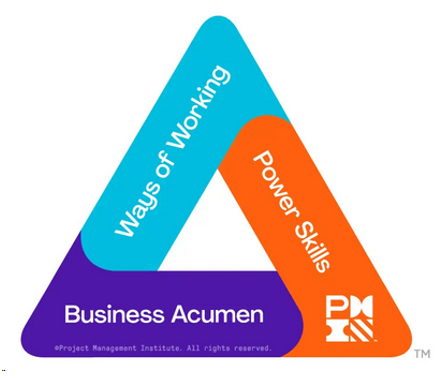PMI Houston The Woodlands: "Use Behavior Management to Ensure Behavior Change for Your Projects"

"Use Behavior Management to Ensure Behavior Change for Your Projects"

Topic Synopsis:
Decades of research show that the majority of improvement initiatives fail to meet performance expectations. We believe this performance expectation disconnect occurs because:
• lack of leadership involvement and ongoing, effective engagement,
• Initiatives tend to be technology-driven, not business-driven, creating a lack of business ownership, and
• specific desired behavior changes are not adequately identified and prioritized.
Typically, we see change initiatives in organizations that:
1. Rely on communication about the case for change as the primary leadership engagement activity, and
2. Lead with the technology solution while the business user impact is a secondary consideration, and
3. Speak about behavior using “behavioral” clichés or umbrella statements that do not define specific desired leader and performer behaviors.
accomplir® Behavior Management (Behavioral Science) defines behavior as “what I say or do”. Behavior Management complements Change Management’s focus on people’s thoughts, feelings, and attitudes. It is Behavior Management that has the most immediate impact and lasting effect on behavior change and sustainability by:
• Pinpointing desired behaviors; specified behaviors are observable and measurable
• Incorporating positive, reinforcing Consequences into leadership behaviors and the management systems / rhythms, thus
• Emphasizing that behavioral data and dialogue are the most effective levers for accelerating and sustaining behavior change
We have demonstrated that engagements leading with Behavior Management (supported by Change Management) dramatically improve user change acceptance and yield more sustainable results, especially in white-collar, technical, service, and professional environments.
accomplir® has pioneered next-generation Integrated Methodology toolsets by embedding key Behavior Management concepts into Lean Sigma, Process Management, Project Management and technology deployment methodologies. Refining these toolsets over the last fifteen plus years, has enabled us to:
• Effectively drive business ownership of the change
• Explicitly identify and prioritize desired behaviors for both performers and leaders
• Increase Leaders’ active involvement and accountability for sustaining behavior-change
• Achieve a 90%+ behavior change success rate across an array of process / operational excellence and technology deployments
This presentation takes a practitioner’s viewpoint focusing on Behavior Management key concepts and selected tools applicable to both the participants’ personal PM leadership behaviors as well as their change initiative PM roles and responsibilities.
Learning Objectives:
Attendees will gain insight into how they can:
PDU Triangle:
0.5 Power Skills PDU & 0.5 Ways of Working PDU
Event Information
| Event Date | 02-25-2025 5:30 pm |
| Event End Date | 02-25-2025 7:30 pm |
| Cut Off Date | 02-25-2025 7:30 pm |
| Capacity | Unlimited |
| Registered | 28 |
| Individual Price | $10 Members / $15 Guests |
| Location | The Sam Houston State University Woodlands Center |
Agendas
| 5:30 pm to 6:15 pm |
Registration, Networking, & Pizza |
| 6:20 pm to 7:20 pm |
Presentation |
Speakers
Paul Fjelsta
Over forty years of consulting, Paul has assisted Fortune 1000 clients measurably improve quality, costs, and productivity through development and delivery of major change programs focused on business process improvement and management, business-driven technology deployment, and leadership development. Paul’s journey began in the 1980’s with a focus on applying Deming and Japanese TQC methodologies. In the ‘90s, Paul joined The Rummler-Brache Group (RBG) delivering engagements utilizing RBG’s Best Practice Business Process Improvement & Management methodology (clients included 3M, Applied Materials, Brown & Root, Cargill, Chevron, Citibank, Haliburton, H-P, Imation, Kraft Foods, US Intelligence Community, and Toyota). Paul launched accomplir®, Inc. in 2003 to develop next-generation improvement toolsets integrating Behavior Science into process improvement and IT / digital deployment methodologies. Over the last fifteen years, these toolsets have been used in numerous engagements to improve change initiative people-dimension outcomes, results and ROI.

